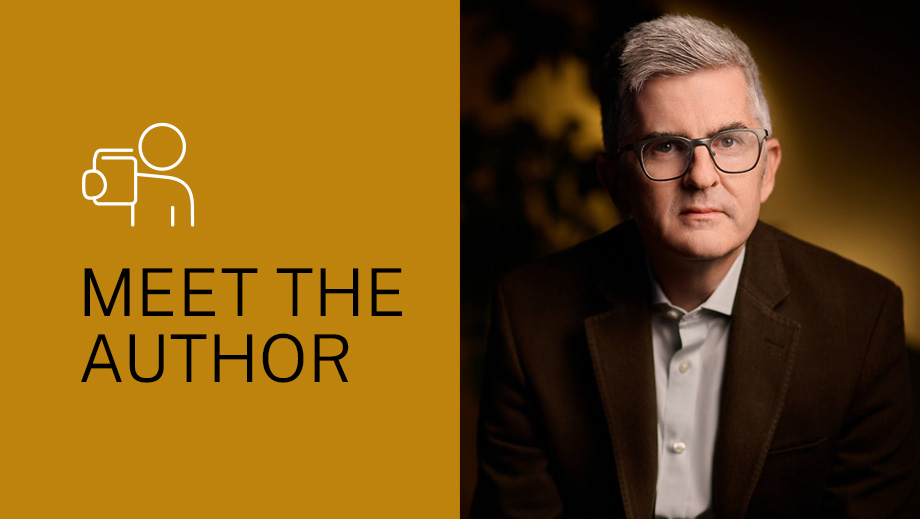Meet the Author: Gordon Peake
“As Bougainville gets to be known more to the outside world, I wanted to be able to present an accurate picture of what the place was like, deliver a primer on its history, and to show … the tremendous spirit of its people.”
Gordon Peake is a writer, podcaster and consultant with extensive experience working at the coalface of international development. His first book, Beloved Land, was an award-winning account of life in Timor-Leste. His latest title Unsung Land, Aspiring Nation: Journeys in Bougainville is out now.
1. Your latest book, Unsung Land, Aspiring Nation, blends history, travelogue and your personal experiences of working in Bougainville for four years. What is it about Bougainville that drove you to write this book?
So many things happened to me during my time in Bougainville and I wrote the book to try to make sense both it as well as the milieu I found myself in there and in the years prior to taking the job, namely working as a consultant in international development programs. As I relate in the book it was also a personally difficult time in my life and finishing the book is a bit of a coda to that period.
2. Why do you believe this story is important to tell? What impact do you hope your research will have?
There are two main threads in the book: one a story about the aspiring nation of Bougainville and the other a reflection on what happens ‘behind the curtain’ of technical assistance programs, which are ubiquitous elements in foreign aid programs. As Bougainville gets to be known more to the outside world, I wanted to be able to present an accurate picture of what the place was like, deliver a primer on its history, to show the realities of trying to build an administration on such thin soil and the tremendous spirit of its people. In terms of foreign aid programs, I wanted to give readers a sense of what the reality is like working in this industry.
One of my favourite writers is George Orwell who said all writers write ‘to move the world in a certain direction’. I very much wanted to do that in this book. I’m no Orwell but I wanted to write the book in an engaging narrative-style that would draw readers in.
3. Can you take us through the process of writing this book? What challenges did you face?
It was a real difficult second album of a book, a karmic wallop given that writing my first book, on Timor-Leste, was such joy. Initially I’d wanted to write a wider book about Papua New Guinea but couldn’t find the thematic spine that could hold everything together. The writing felt flat, lifeless, distant. I wrote draft after draft and eventually gave up. A woman called Nadine Davidoff who works as a kind of ‘book whisperer’ read one of those drafts, 30% of which was about Bougainville, and thought there was much more oomph in that section than in others, and so I built the book out from that section. But even then, it took many good drafts to get the tone of the book right. I’m very grateful to all the readers of various drafts who helped sharpen the product and, on some occasions, save me from myself!
4. Why did you choose to publish with ANU Press?
I became familiar with ANU Press’s work when I was asked to write a blurb for Lisa Palmer’s beautiful book about on Timor-Leste. Her book – also a blend of history, travel and memoir – made me confident that ANU Press would be a good home for a book on Bougainville.
5. How have you found the open-access publishing model?
I must admit it took me a while to get used to! I had to reframe my thinking of a book as a physical thing that one pays for to a more incorporeal thing that can be accessed via the ANU website. But now I really like it. It’s a means of getting the book closer to readers, especially in the Pacific. I’ve been bowled away by the amount of people in Bougainville and Papua New Guinea who have read the book online since publication. That number would have been far fewer if it was a printed book. That said, I’m glad (for fuddy-duddies like me) that physical copies of the book can be purchased also!
6. What is next for you?
I’m trying to write a novel! A bit of a change of pace from non-fiction. I’ve still got a hankering to write that wider book about Papua New Guinea.




